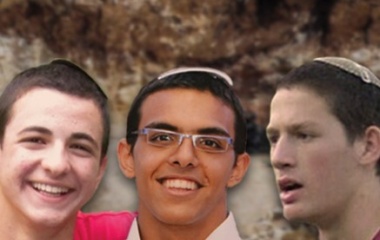
Monday morning at 1:30AM here in Israel, I joined over one hundred million of my fellow earth dwellers to watch Superbowl XLVI. When halftime rolled around, I imagine there were far fewer of us who left the broadcast and surfed over to the YU Torah Superbowl Halftime Show, to view a series of short shiurim relating to the theme of sports (particularly football) and Judaism. Despite the objections of some of my guests, leaving Madonna to listen to a shiur seemed like the obvious choice to me. In fact, the site congratulated me for "choosing to incorporate Torah into your Superbowl experience." But after further review, as they like to say in the NFL, I am not sure if the halftime shiur was the right call.
It is not that the speakers were not good. In fact, each one was informative, entertaining and clever, some demonstrating a sound knowledge of football as well as Torah. The speakers executed their assignments ably. So what was my problem?
Imagine that you go to hear Sinatra in concert, and he’s wonderful. But instead of some major concert hall in Las Vegas, he is playing the lounge at the Holiday Inn in Kingston. Your reaction would be, "Good concert, but is this what it has come to?" As those shiurim filled my TV screen, I found myself thinking: Torah—holy and exalted, the word of a living God—is a halftime show for a football game. Is this what it has come to?
The truth is, there are three debates in the Talmud that foreshadow the YU Torah Superbowl Halftime Show. (The idea of putting Torah "out there", and my accompanying sense of uneasiness, is not new.) The first is a passage in Brachot 28a, which describes the day that Rabban Gamliel was deposed as President of the Sanhedrin. "On that day, the doorkeeper was removed, and permission was given to the disciples to enter. For Rabban Gamaliel had issued a proclamation [saying]: No disciple whose character does not correspond to his exterior may enter the Beth ha-Midrash."
The second passage records a heated interaction between Rebbe and his student Rabi Chiya. "Again, on one occasion, Rabbi issued an order that they should not teach disciples in the open public marketplace. What was his exposition? 'How beautiful are thy steps in sandals, O prince's daughter! The roundings of thy thighs are like the links of a chain [the work of the hands of a skilled workman].' As the thigh is covered, O the [discussions on the] words of the Torah are also [to be] under cover. R. Hiyya went out and taught the sons of his two brothers in the [open] marketplace, Rab and Rabbah son of Kar Hana. Rabbi heard [of this and] was vexed” (Moed Katan 16a).
The third passage details the differences between Hillel and Shammai's methods of relating to the heathen. First, there was the one who asked to be made "a proselyte, on condition that you teach me the Written Torah [only]." Shammai "scolded and repulsed him in anger;" whereas Hillel accepted him as a proselyte, only to begin the process of correcting his misunderstandings the next day. Then there was the heathen who asked to be converted "on condition that you teach me the whole Torah while I stand on one foot." Again, Shammai repulsed him; but Hillel did not. Finally, there was the one who went before Shammai and said to him, “Make me a proselyte, on condition that you appoint me a High Priest." Here, too, Shammai rejected him, while Hillel did not. Consistently, Shammai was never willing to make any accommodation; Hillel, however, was always willing to meet the potential convert where he was.
This is the tension that binds all three passages: Is the Torah to remain protected, aloof—and thereby pure—or is the Torah to be taken to the masses where its august grandeur may not be actualized? Do the keepers of Torah do it a service by protecting it, or a disservice by keeping away from its possessors?
The Talmud states that, prior to the giving of the Torah, Hashem lifted the mountain over the heads of the Israelites and declared, "If you accept the Torah, ‘tis well; if not, there shall be your burial” (Shabbat 68b). The question is asked: Why did Hashem need to threaten B’nei Yisrael after they had already accepted the Torah? The Maharal answers that Hashem wanted to impress onto B’nei Yisrael—precisely after they accepted the Torah—that the Torah is not valid due to their acceptance! Rather, the Torah simply IS. Its force, truth, and validity do not depend on them. The Torah does not exist on our terms.
In our generation, we are very good at taking the Torah to the Torah consumer. Torah is sleek, it is relevant, and it is sometimes even hip. But as teachers and learners, how good are we at simply being in awe of it because it should be object of our awe, and communicating that sense of awe to others?
The Torah is now a halftime show; that is the reality. It is more valuable than Madonna—agreed. But is that the best light in which Torah should be presented? That is a question that kept me up all night last week.



